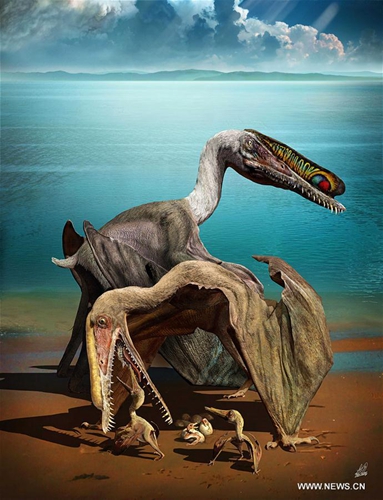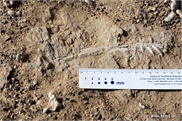Modest insect-munching Madagascar reptile was forerunner to dinosaurs
Dinosaur forerunner discovered

The reconstruction image made by Zhao Chuang shows the species Hamipterus tianshanensis according to the discoveries in a desert in Hami, northwest China's Xinjiang Uygur Autonomous Region. Photo: Xinhua
Dinosaurs and the flying reptiles called pterosaurs - both known for achieving great size - had humble beginnings, as shown by a diminutive insect-eating reptile from Madagascar that was a forerunner and close relative of both groups.
Scientists on Monday described fossils of a Triassic Period creature, called Kongonaphon kely, that measured about 40 centimeters long and stood 10 centimeters tall at the hip. It inhabited a floodplain region of what is now southwestern Madagascar about 237 million years ago.
Kongonaphon was a long-legged predator that may have been bipedal. The shape of its small, conical and unserrated teeth and an examination of microwear on them suggests Kongonaphon, whose scientific name means "tiny bug slayer," ate insects or other small invertebrates.
It was a member of a group called Ornithodira spanning the evolutionary lineage that led to dinosaurs and pterosaurs, part of a larger assemblage called archosaurs that also included the crocodilian lineage.
"Based on statistical analyses of body size, we argue that dinosaurs and pterosaurs evolved from a miniaturized ancestor," said North Carolina Museum of Natural Sciences paleontologist Christian Kammerer, lead author of the research published in the Proceedings of the National Academy of Sciences.
"Evolution of gigantism from tiny ancestors is not uncommon in the fossil record," added study coauthor and paleontologist John Flynn of the American Museum of Natural History in New York.
Dinosaurs and pterosaurs first appeared roughly 230 million years ago.


